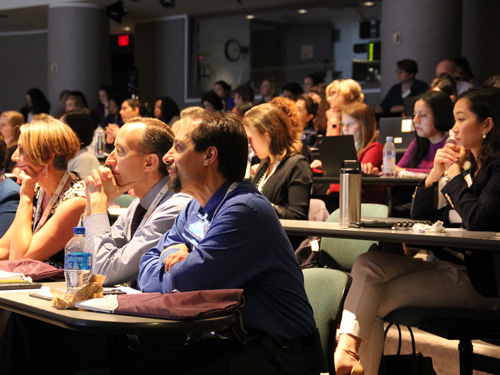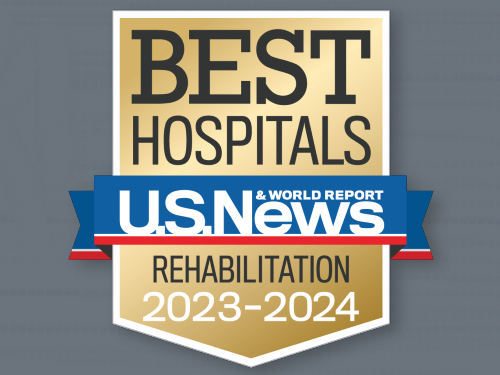
Q: How does education position rehabilitation patients for long-term success?
Rhonda Abbott: Today more than ever, we must be good stewards of our health care resources and use them well to help our patients achieve maximum function safely while reducing secondary complications and avoiding readmissions. Our education program works on many levels. We educate patients before, during and after their stay with us. We educate our staff in best practices within their disciplines and across disciplines, and we educate new and experienced professionals nationally and internationally through internships, externships, residencies, fellowships, courses and conferences. We present our discoveries to advance knowledge and enhance long-term outcomes around the world.
Q: How do we support staff in advancing their careers?
Abbott: Our goal is to engage our teams through education to propel their careers forward and change our employees’ lives by investing in them. Education is the beginning of practice in health care, and it’s how we advance the level of care we provide our patients. It’s also the beginning of learning to live life with a disability. Education serves as the foundational element for our other three pillars – clinical care, research and advocacy. We support our therapists, nurses, neuropsychologists, social workers, physicians and other rehabilitation professionals to expert practice level. When they become expert-level practitioners, they can grow their specialty practice in new ways and contribute to the knowledge of their disciplines and beyond. Education is important from novice to expert and even pre-novice, when discovery of rehabilitation helps people make decisions about their career path. When I started at TIRR in 2001, we offered a few courses a year that met focused needs. Today we provide very broad educational offerings, and we support our staff by giving them time and financial support for continuing education as part of our commitment to this critical pillar.
Q: What is the role of TIRR Memorial Hermann Education?
Abbott: As a leader in rehabilitation, we have a responsibility to reach beyond our walls. Through the Academy we share knowledge with our own teams and with rehabilitation professionals around the world. They come to TIRR to learn best rehabilitation practices from our educators, who have honed their skills working alongside researchers, academicians and clinical experts. When we host conferences for national and international attendees, we have a unique opportunity to impact the lives of individuals whom we will never meet. Through educating practitioners within and beyond the Memorial Hermann Rehabilitation Network, the Academy helps individuals with disabilities we’ll never personally work with as practitioners. As lifelong learners, we also embrace learning from those we have the privilege to teach, continuing the cycle of education that truly advances practice and clinical care.

Nationally Ranked Rehabilitation
For the 34th consecutive year, TIRR Memorial Hermann is recognized as the best rehabilitation hospital in Texas and No. 4 in the nation according to U.S. News and World Report's "Best Rehabilitation Hospitals" in America.
Learn More